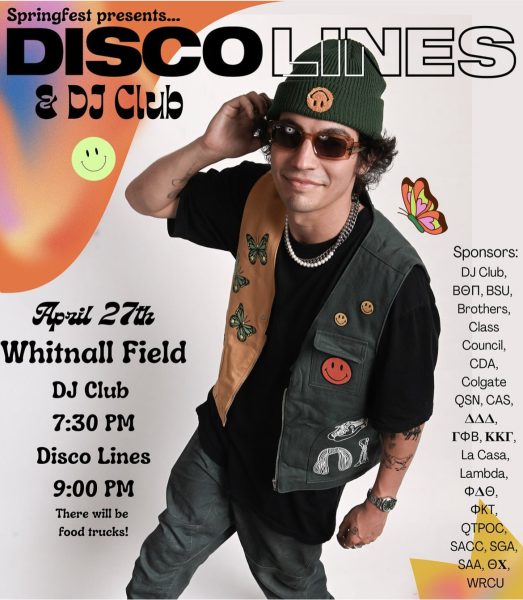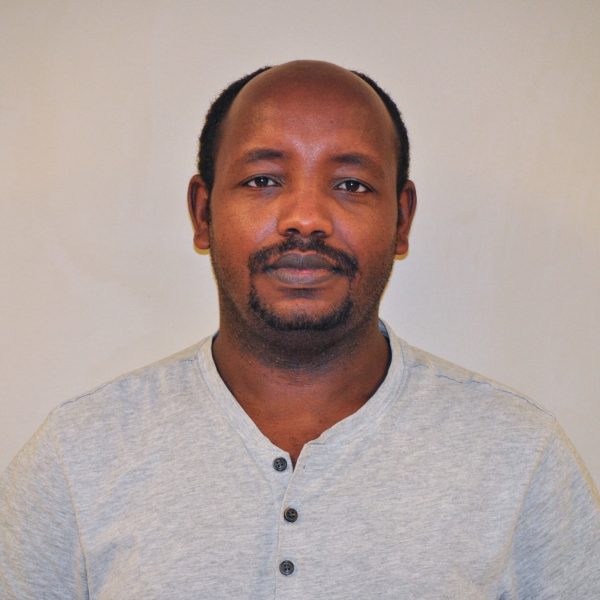Colgate’s Network Brings Two SAFEs to Campus
The Network brought Amy Jennings and Jodi Brandis, two Sexual Assault Forensic Examiners (SAFEs) from Oneida Healthcare Center, to campus for a Brown Bag on April 16. The Network is a Center for Outreach, Volunteerism and Education (COVE) team that works to raise awareness of sexual assault and relationship violence.
“Jennings and Brandis are both certified SAFEs which means they have specific training to collect rape evidence kits on sexual assault victims. Any nurse can do this exam, but this training certification makes them expert witnesses in the event that a survivor chooses to move forward with pressing charges against their attacker and the case goes to court,” Team Advisor for The Network Colleen Nassimos said.
During the Brown Bag, Jennings and Brandis described their responsibilities as SAFEs. The nurses emphasized the importance of remaining impartial during the process of collecting evidence, as they explained that it is not a SAFE’s job to determine if a victim should press charges.
SAFE nurses use various techniques to collect evidence that could link the victims to perpetrators as well as test victims for sexually transmitted diseases.
Nassimos explained that the Network tries to bring the nurses to campus every year, as she has had many conversations with students who express interest in learning about or demystifying the rape exam and evidence collection process.
“In terms of the presentation, Jennings and Brandis did a great job in keeping to the facts about how the exam is performed as well as answering questions from the group,” Nassimos said.
During the Brown Bag, the nurses also spoke about the proper protocol if an individual is ever sexually assaulted. They mentioned that victims should not take a shower, eat or drink anything, and if possible, bring an extra change of clothes to the hospital.
“I thought this was one of the best brown bags I have been to this year. I think [the nurses] provided a bunch of information that is really important to know. When they talked about what to do if you are ever sexually assaulted, I learned a lot that I didn’t know before. I feel like what they said should be common knowledge, but it isn’t,” first-year Erica Pais said.
Over the past couple of months, there has been much debate about how the Hamilton Hospital does not have a SAFE on call. Nonetheless, Jennings and Brandis emphasized why it is important for individuals to seek care from nurses who are trained in how to handle victims of sexual assault, given the care and technique required for the tests to be done accurately.
“[The Brown Bag] made me wish we had a SAFE for Colgate students at a hospital that is closer than 30 minutes away, but also extremely grateful that we have access to these services,” senior Rebecca Atkinson said.
Junior Sydney Pollock, one of the leaders of The Network, explained that she has been to the Brown Bag for three years in a row, and she is continually impressed with the nurse’s precision and sensitivity.
“I think the SAFE nurses raise an important aspect [even though] we don’t have them at Hamilton Hospital… When someone needs medical care after a sexual assault, they should be in caring and experienced hands as the exam can be very invasive and violating particularly to someone who has experienced a traumatic event. I think one problem is that people still don’t understand why Hamilton isn’t the place recommended for this type of treatment and I think the nurses can convey why it is essential to seek the best care,” Pollock said.
Due to the crowded room and limited time available for questions from the audience, Nassimos explained that she aims to move the venue to a larger room next year to accommodate more students and perhaps adjust the time frame.







